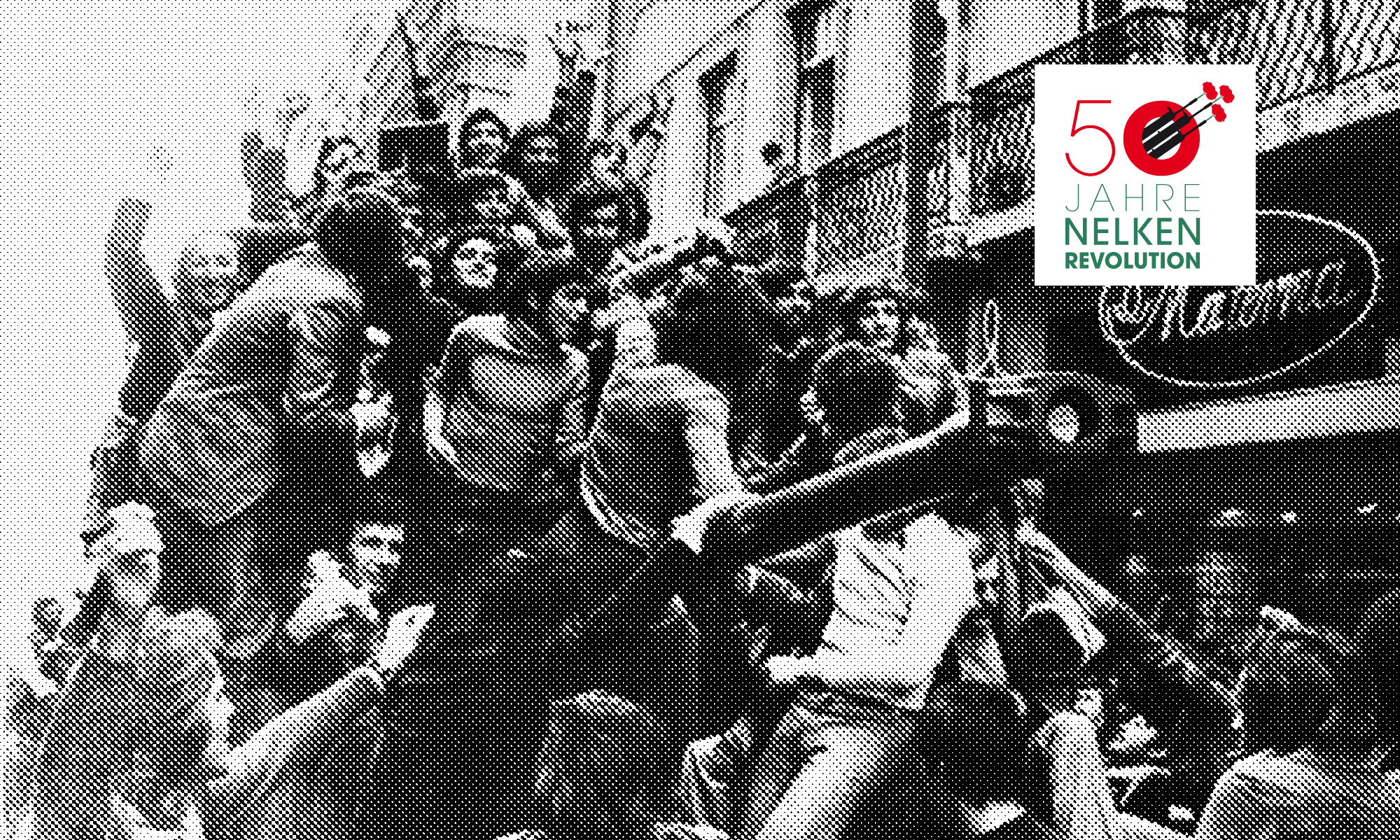Portugal was the poorhouse of Europe, the second poorest country before Turkey. Child labour and a lack of education, a high illiteracy rate and catastrophic hygienic conditions were an everyday occurrence. In the north, small farmers worked as they had for centuries, often at subsistence level. In the south, the rural proletariat had to work on huge estates for starvation wages, usually only for seasonal labour. The large landowners only cultivated crops that promised high profits, such as eucalyptus and cork. Land lay fallow and basic foodstuffs had to be imported at high prices.
The industry was dominated by seven monopolies. They were in the hands of a few families, closely interwoven with political power. The colonial war from 1961 onwards forced Portugal to open up to foreign capital for political and economic reasons. It became the „extended workbench“ of the West. Despite the low productivity of most companies, low wages ensured profits of 14 to 40%. With its repressive apparatus, the state ensured that exploitation ran as smoothly as possible.
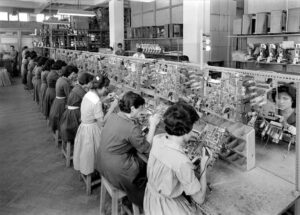
Standard Eléctrica was founded in 1932 by the US ITT Corporation in Lisbon. It manufactured telecommunications equipment, military radios and later televisions too.
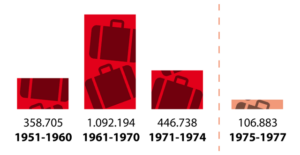
Emigration from Portugal 1951-1977
Almost 1.9 million people left the country between 1951 and 1974 due to economic hardship or to avoid being drafted into the colonial war. Their monetary transfer from abroad were an important part of the national income.
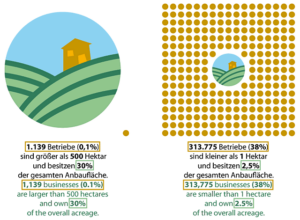
Number, size and ownership of farms in 1968, totalling approx. 800,000 businesses.
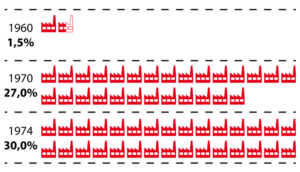
United in exploitation: share of foreign companies in Portuguese industry. Including West Germany (Volkswagen, Grundig, Siemens, Hoechst, FAG), USA (ITT, Philips, General Motors), France (Saint Gobin, Citroén, CFP), Belgium (Petrofina, Sofina), Netherlands (Dutch Shell).
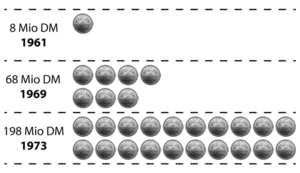
Investments by West German companies from 1961 to 1973 in millions of Deutschmarks (2 DM = 1 euro).
Images
Fotógrafo: Estúdio Horácio Novais. CC BY-NC-ND 2.0
www.flickr.com/photos/biblarte/14553557981/in/album-72157622167274800/
